I'm studying SQL, I made no test at all, so I'm sorry for my stupid question. apparently (in my guess LOL) LEFT and RIGHT join can be equivalent inverting the tables (operands). is this right?
if yes, so why I should prefer to write this:
SELECT * FROM aaa LEFT OUTER JOIN bbb ON aaa.x = bbb.x
instead of this:
SELECT * FROM bbb RIGHT OUTER JOIN aaa ON aaa.x = bbb.x
